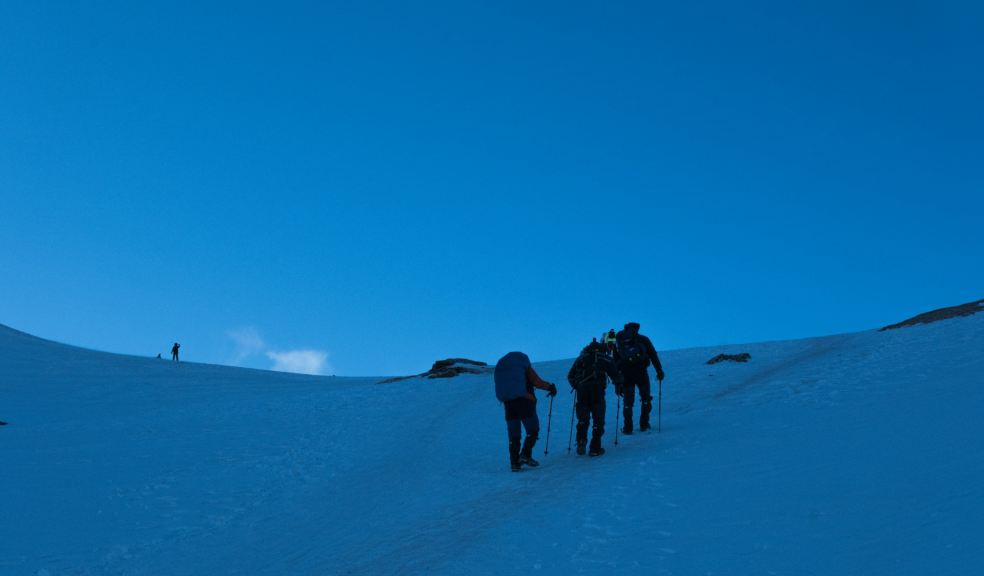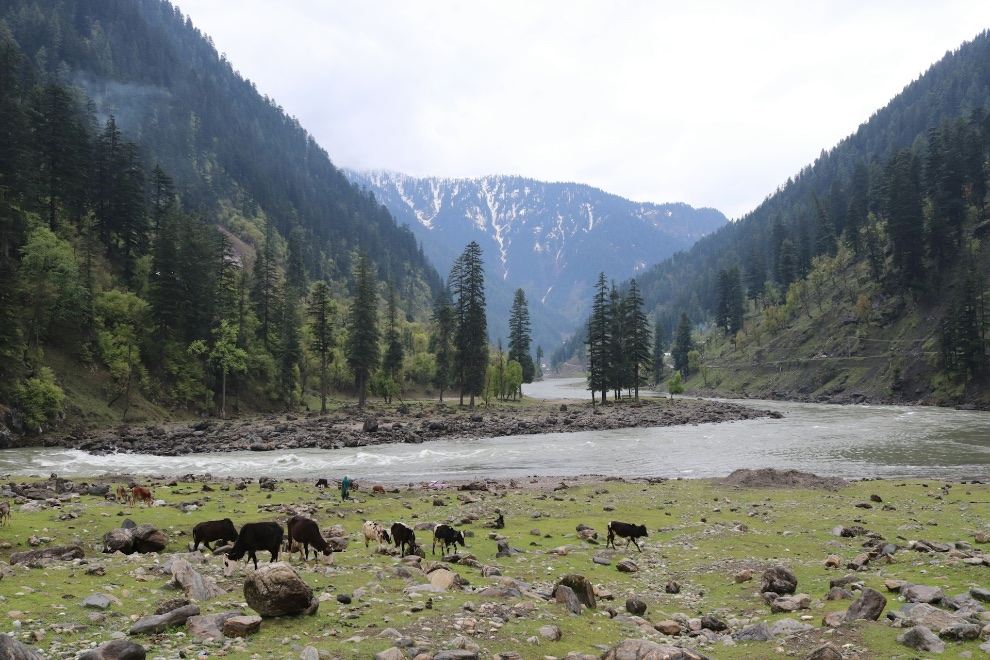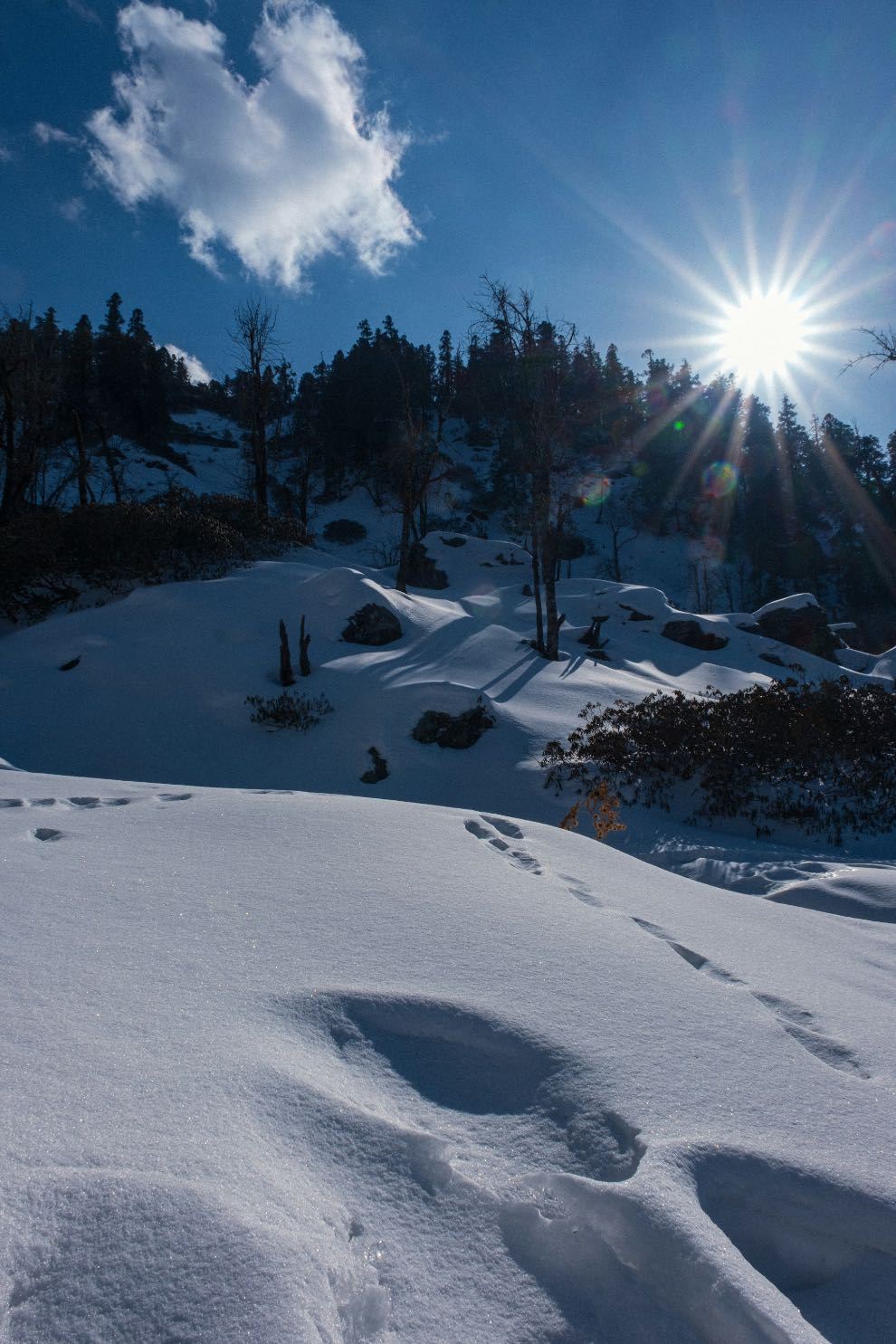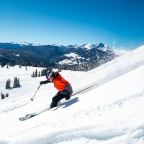
Kashmir Great Lakes vs. Kedarkantha Trek: Which is Right for You?
India’s trekking scene is full of amazing experiences, and two of the most popular treks for adventure seekers are the Kashmir Great Lakes Trek and the Kedarkantha Trek. Both offer incredible views, unique landscapes, and the chance to experience nature up close. But how do you choose between the two?
This guide will break down both treks, their challenges, highlights, and what kind of traveler they are best suited for. Let’s dive in and see which trek is the right fit for you.
Kashmir Great Lakes Trek: A High-altitude Adventure
Location: Kashmir Valley, Jammu & Kashmir
Best time to visit: July to September
Trek Duration: 7-9 days
Max Altitude: 13,000 feet
The Kashmir Great Lakes Trek is one of India’s most scenic and challenging treks. It takes you through the famous Kashmir Valley, offering panoramic views of pristine alpine lakes, snow-capped peaks, and lush meadows. The trek spans 7 to 9 days, depending on your itinerary, and reaches altitudes of up to 13,000 feet.
What Makes It Special?
The main highlight of the Kashmir Great Lakes Trek is the stunning high-altitude lakes, such as Vishansar Lake, Krishansar Lake, and Gadsar Lake. These sparkling lakes are surrounded by rugged mountain landscapes, offering breathtaking photo opportunities. The trek also takes you through dense forests, past alpine meadows, and over high mountain passes.
The route is challenging and requires a good level of physical fitness and endurance. It is considered a moderately difficult trek due to the steep ascents and high altitude. The trek also offers the chance to experience Kashmir’s unique culture and remote villages, which are rarely seen by tourists.

Who is it Best For?
The Kashmir Great Lakes Trek is perfect for seasoned trekkers or those looking for a challenge. If you’re someone who enjoys long, demanding treks with stunning views and a sense of adventure, this is a trek you’ll love. It’s also ideal for nature enthusiasts who want to witness the region’s untouched beauty.
Things to Keep in Mind
-
The trek is longer and requires more stamina than most other treks in India.
-
The weather can change quickly, and temperatures at night can drop significantly, so good preparation is key.
- Due to the remote locations, medical help can be far away, so it’s important to take extra care while trekking.
Kedarkantha Trek: A Winter Wonderland
Location: Uttarkashi District, Uttarakhand
Best time to visit: December to March
Trek Duration: 4-6 days
Max Altitude: 12,500 feet
The Kedarkantha Trek is one of the most popular winter treks in India. Located in the Garhwal region of Uttarakhand, it’s known for its snow-covered trails, scenic beauty, and relatively easier difficulty level compared to other high-altitude treks.
What Makes It Special?
The Kedarkantha Trek offers a classic winter trekking experience. During the winter months (December to March), the entire trail is blanketed in snow, turning the forest and meadows into a magical winter wonderland. The trek provides panoramic views of famous peaks like Swargarohini, Bandarpoonch, and Black Peak.
The journey involves a climb to the summit at 12,500 feet, where trekkers are rewarded with sweeping views of the surrounding mountains. The trek passes through beautiful campsites such as Juda Ka Talab, Hargaon, and Kedarkantha Base, offering spectacular views of snow-clad trees and frozen lakes.
Who is it Best For?
The Kedarkantha Trek is perfect for beginners and moderate trekkers who are looking to experience snow trekking. It’s a shorter trek, usually taking only 4 to 6 days, making it more accessible to people with less trekking experience. The well-marked trail, relatively moderate altitude, and the beauty of snow make it a great option for those who want to experience a winter trek without committing to a high-altitude, longer adventure.

Things to Keep in Mind
-
The trek is best during winter, so pack accordingly with warm layers, gloves, and snow gear.
-
The trail can get crowded during peak season (December to March), so consider booking in advance.
-
While the trek is easier than the Kashmir Great Lakes Trek, the cold weather and snow can add to the challenge.
Key Differences: Kashmir Great Lakes vs. Kedarkantha Trek
|
Feature |
Kashmir Great Lakes Trek |
Kedarkantha Trek |
|
Location |
Kashmir Valley, Jammu & Kashmir |
Uttarkashi District, Uttarakhand |
|
Best Time to Visit |
July to September |
December to March |
|
Trek Duration |
7-9 Days |
4-6 Days |
|
Max Altitude |
13,000 feet |
12,500 feet |
|
Difficulty Level |
Moderate to Challenging |
Easy to Moderate |
|
Main Highlights |
Alpine lakes, snow-capped peaks, remote villages |
Snowy meadows, scenic winter landscapes, summit views |
|
Suitable for |
Experienced trekkers |
Beginners to moderate trekkers |
|
Weather |
Cold, unpredictable |
Cold, snow-covered landscapes |
Which Trek Should You Choose?
Choose the Kashmir Great Lakes Trek if:
-
You’re an experienced trekker looking for a challenge.
-
You want to explore remote, untouched natural beauty and alpine lakes.
-
You enjoy long treks through diverse landscapes, including meadows, forests, and high-altitude lakes.
-
You have a higher fitness level and can handle altitude and steep climbs.
Choose the Kedarkantha Trek if:
-
You’re a beginner or someone with moderate trekking experience.
-
You want to experience trekking in the snow and enjoy scenic views of snow-covered peaks.
-
You’re short on time but still want a memorable adventure in the Indian Himalayas.
-
You’re looking for a winter trek with moderate difficulty and beautiful campsites.
Both the Kashmir Great Lakes Trek and the Kedarkantha Trek are incredible experiences, but they cater to different types of trekkers. If you’re seeking a high-altitude challenge with stunning alpine lakes, the Kashmir Great Lakes Trek is perfect for you. If you want to enjoy a snow-filled trek with beautiful views and a more manageable difficulty level, Kedarkantha is the ideal choice.
Consider your fitness level, experience, and the kind of adventure you’re looking for. Whichever trek you choose, you’ll be surrounded by the unmatched beauty of the Indian Himalayas.











